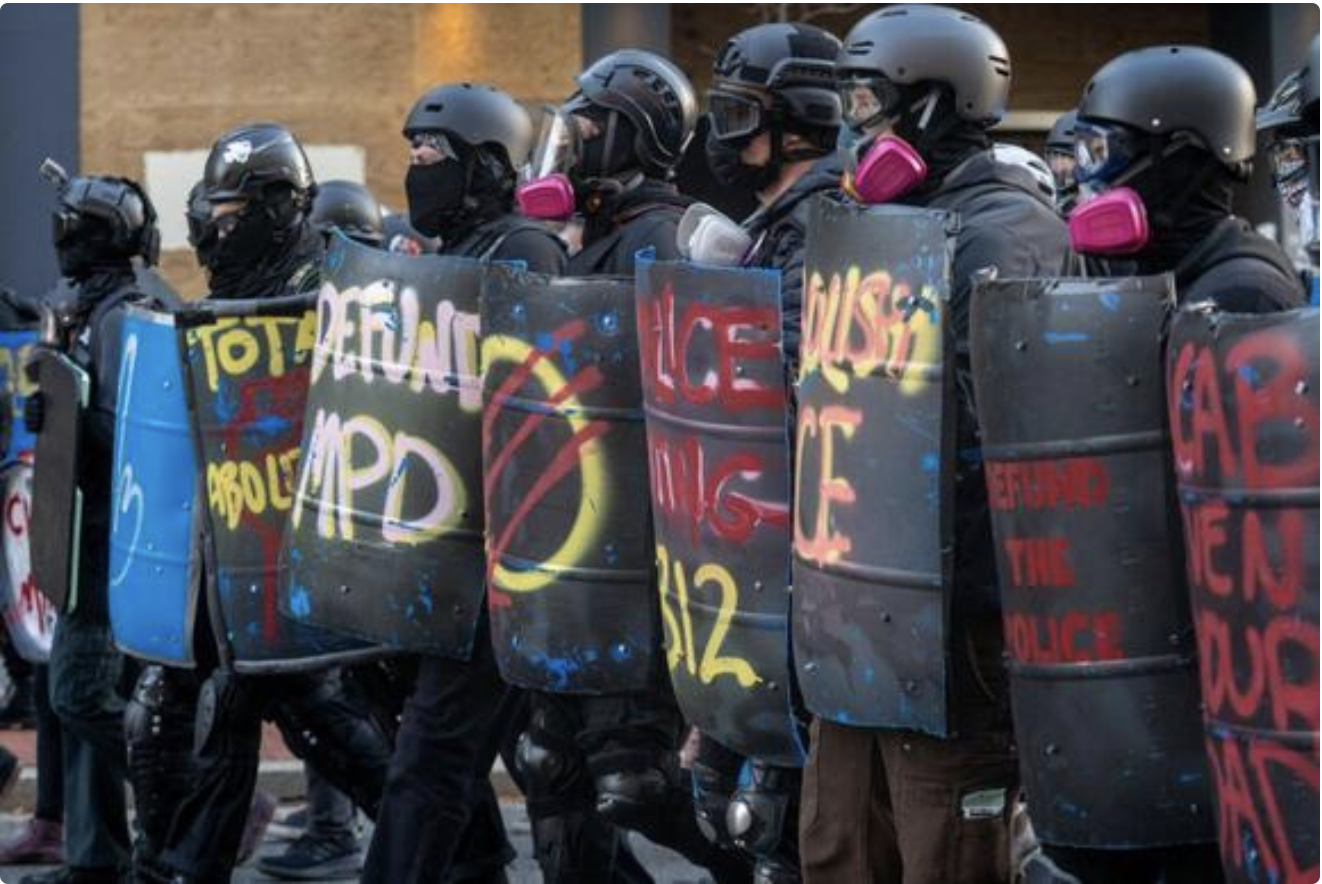PORTLAND, Ore., Oct. 4 (UPI) — War Secretary Pete Hegseth reportedly considered deploying one of the U.S. Army’s most elite combat units, the 82nd Airborne Division, to Portland, Oregon, to quell ongoing violent protests and unrest near the city’s Immigration and Customs Enforcement (ICE) facility.
According to reports from The Minnesota Star Tribune and The Guardian, Hegseth discussed the possible deployment in internal communications last weekend. The idea emerged as protests outside the ICE building — led by Antifa-affiliated groups and other demonstrators — escalated into violent clashes that included assaults on law enforcement officers and damage to federal property.
Internal Messages Reveal Consideration of Airborne Deployment
Deputy Homeland Security Investigations Adviser Anthony Salisbury reportedly exchanged text messages “in a crowded, public space” suggesting that Hegseth was considering sending the 82nd Airborne, known for its rapid deployment capability, into Portland. The Star Tribune says it obtained images of these communications, confirming that serious discussions about such an unprecedented deployment took place.
Also Read
Instead of deploying active-duty troops, the Trump administration ultimately authorized the mobilization of 200 National Guard members in Oregon. These troops were assigned to protect federal facilities amid what President Trump has called “lawless mayhem.”
DHS: Federal Agents Under Attack
In a September 26 news release, Department of Homeland Security (DHS) Assistant Secretary Tricia McLaughlin accused Antifa and other far-left extremists of carrying out a sustained campaign of violence in Portland.
“Antifa and other left-wing extremists have shot, attacked, issued death threats against, and incited riots targeting law enforcement,” McLaughlin said. “But they haven’t stopped us — they’re not even slowing us down.”
The release stated that rioters have “repeatedly attacked and laid siege” to the ICE processing center in South Portland and accused the Rose City Antifa group of illegally publishing private information about ICE officers, including home addresses and photographs.
Justice Department Probing Portland Police
The White House confirmed Friday that the Justice Department (DOJ) is investigating the Portland Police Bureau and city officials for potential selective law enforcement. The inquiry follows allegations that local police have failed to protect conservative journalists and counterprotesters from Antifa violence while taking aggressive action against right-leaning demonstrators.
White House Press Secretary Karoline Leavitt said the DOJ investigation was prompted by the arrest of conservative journalist Nick Sortor outside the ICE facility on Thursday night. Sortor, a social media influencer, was arrested alongside two others for alleged disorderly conduct. Leavitt claimed Sortor was “ambushed by Antifa” and detained “while defending himself.”
Meanwhile, police have been accused of ignoring an earlier assault on reporter Katie Daviscourt of The Post Millennial, who was struck in the head with a flagpole during a protest earlier in the week. Witnesses say the attacker, allegedly an Antifa member, was not arrested.
In a memo obtained by Oregon Public Broadcasting (OPB), DOJ civil rights attorneys Harmeet Dhillon and R. Jonas Geisseler wrote, “All three allegations suggest Portland officials have selectively enforced the law based on viewpoint.” Federal investigators have requested bodycam footage, arrest records, and city communications related to these incidents, as well as zoning documents tied to the city’s attempt to shut down the ICE facility.
City Considers Closing ICE Facility
In response to growing controversy, the Portland City Council is now weighing whether to revoke the ICE building’s lease, citing alleged violations such as housing detainees for more than 24 hours. The proposal has drawn criticism from federal officials who accuse the city of using local ordinances to obstruct immigration enforcement.
Antifa Designated a Domestic Terror Group
President Donald Trump formally designated Antifa a domestic terrorist organization on September 22, citing continued violence in Portland and other U.S. cities. Trump has previously condemned the group’s decentralized structure and its involvement in attacks on law enforcement and conservative demonstrators.
Although Antifa lacks centralized leadership, the DOJ and local prosecutors have pursued criminal conspiracy and racketeering cases against affiliated cells.
In June 2024, San Diego County District Attorney Summer Stephan announced the conviction of 11 Antifa members linked to a 2021 riot in Pacific Beach, California. The defendants were charged under the Racketeer Influenced and Corrupt Organizations (RICO) Act, conspiracy to commit a riot, assault with a deadly weapon, and use of tear gas.
According to prosecutors, the group organized on social media to attack a conservative rally and “engaged in violent acts while wearing black clothing and protective gear.” Nine pleaded guilty, while two others were convicted at trial, receiving sentences of up to five years in prison.
National Implications
The reports of Hegseth’s consideration of deploying the 82nd Airborne Division underscore the gravity with which federal officials view unrest in Portland — and highlight tensions between local leaders and the White House over how to respond.
If confirmed, such a deployment would have represented a rare use of active-duty military personnel for domestic law enforcement, raising serious constitutional and political concerns under the Posse Comitatus Act, which restricts military involvement in civilian policing.
Federal officials maintain that Portland’s ongoing clashes — marked by attacks on ICE facilities, violence between demonstrators and counterprotesters, and accusations of selective enforcement — illustrate a breakdown of local control that justifies federal intervention.
For now, the 82nd Airborne remains at its base in Fort Liberty, North Carolina, while the National Guard continues limited operations in Portland. But the revelation that one of the military’s most elite combat units was considered for deployment on U.S. soil underscores how Portland has become a focal point of America’s deep political and social divides — a city where protests, politics, and federal power collide in full view of the nation.












